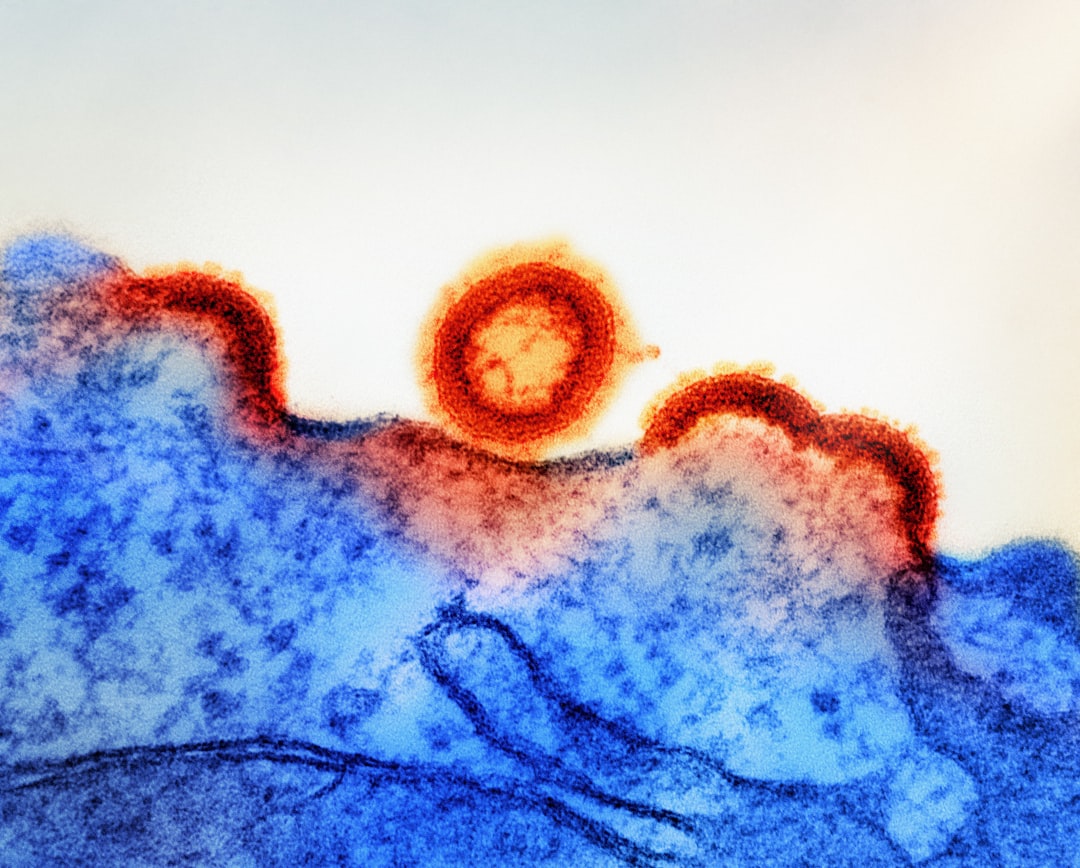Toxoplasma gondii is a single-celled parasite that has garnered significant attention in both the scientific community and popular culture. This organism is known for its complex life cycle, which involves various hosts, including cats, rodents, and humans. As a member of the Apicomplexa phylum, Toxoplasma gondii is particularly fascinating due to its ability to manipulate the behavior of its hosts, especially in the case of rodents.
When you consider the implications of such manipulation, it becomes clear that this parasite is not just a simple organism; it has the potential to influence human behavior and health in profound ways. The prevalence of Toxoplasma gondii is staggering, with estimates suggesting that nearly one-third of the global population may be infected at some point in their lives. While many individuals remain asymptomatic, the parasite can have far-reaching effects on those with compromised immune systems or other underlying health conditions.
Understanding Toxoplasma gondii is crucial not only for public health but also for unraveling the intricate connections between parasites and host behavior. As you delve deeper into this topic, you will discover how this tiny organism can have significant implications for human psychology and societal dynamics.
Key Takeaways
- Toxoplasma gondii is a common parasite that can infect humans and animals.
- Humans can become infected with Toxoplasma gondii through ingestion of contaminated food or water, or through contact with infected cat feces.
- Toxoplasma gondii has been linked to changes in human behavior, including increased risk-taking behavior and potential mental health disorders.
- Research suggests that Toxoplasma gondii infection may be associated with personality changes and cognitive function in humans.
- The potential impact of Toxoplasma gondii on society is an area of ongoing research, with implications for public health and policy.
How Toxoplasma gondii is transmitted to humans
Toxoplasma gondii is primarily transmitted to humans through several routes, each presenting unique risks.
If you have a cat or come into contact with cat litter, you may unknowingly expose yourself to these oocysts.
They can survive in the environment for long periods, making it easy for them to contaminate soil, water, and food sources. Consuming undercooked or raw meat from infected animals is another significant route of transmission. If you enjoy eating meats like lamb or pork, it’s essential to ensure they are cooked thoroughly to eliminate any potential risk.
Another less common but noteworthy transmission route involves organ transplantation or blood transfusion from an infected donor. While this method is rare, it highlights the importance of screening and awareness in medical settings. Additionally, pregnant women should be particularly cautious, as Toxoplasma gondii can cross the placenta and affect fetal development.
If you are pregnant or planning to become pregnant, understanding these transmission routes can help you take necessary precautions to protect both yourself and your unborn child.
The effects of Toxoplasma gondii on human behavior

The effects of Toxoplasma gondii on human behavior are a subject of growing interest among researchers. Studies have suggested that this parasite may influence various aspects of human psychology, including mood, personality traits, and even decision-making processes. For instance, some research indicates that individuals infected with Toxoplasma gondii may exhibit increased levels of anxiety or depression.
This connection raises questions about how a microscopic organism can have such profound effects on mental health and emotional well-being. Moreover, the behavioral changes associated with Toxoplasma gondii infection are not limited to mood disorders. Some studies have found correlations between infection and risk-taking behaviors.
If you find yourself more impulsive or adventurous than usual, it might be worth considering whether an underlying infection could be influencing your choices. The idea that a parasite could alter human behavior challenges traditional notions of free will and personal agency, prompting further investigation into the complex interplay between biology and psychology.
Toxoplasma gondii and risk-taking behavior
| Study | Findings |
|---|---|
| Webster et al. (2006) | Found a positive correlation between Toxoplasma gondii infection and risk-taking behavior in rats. |
| Flegr et al. (2014) | Reported an association between Toxoplasma gondii infection and increased risk-taking behavior in humans. |
| Stock et al. (2019) | Identified a potential link between Toxoplasma gondii infection and altered risk perception in individuals. |
One of the most intriguing aspects of Toxoplasma gondii’s influence on human behavior is its potential link to risk-taking behavior. Research has shown that individuals infected with this parasite may be more prone to engage in risky activities, such as reckless driving or unprotected sex. This phenomenon can be partially explained by the parasite’s ability to manipulate neurotransmitter levels in the brain, particularly dopamine.
If you are someone who enjoys thrill-seeking activities, it’s worth considering how external factors like infections might play a role in your propensity for risk. The implications of increased risk-taking behavior extend beyond individual choices; they can also impact societal dynamics.
This raises important questions about public health strategies and the need for awareness regarding the potential behavioral effects of this parasite. Understanding these connections can help you make informed decisions about your lifestyle and health.
Toxoplasma gondii and mental health disorders
The relationship between Toxoplasma gondii and mental health disorders is an area of active research that continues to evolve. Some studies have suggested a correlation between Toxoplasma infection and various psychiatric conditions, including schizophrenia and bipolar disorder. If you or someone you know has experienced these disorders, it may be worth exploring whether there is a connection to Toxoplasma gondii infection.
While not all individuals with these conditions are infected, understanding this potential link could open new avenues for treatment and prevention. Furthermore, the impact of Toxoplasma gondii on mental health may not be limited to severe psychiatric disorders. Subclinical symptoms such as anxiety and depression have also been associated with infection.
If you find yourself feeling unusually anxious or downcast without an apparent cause, it might be beneficial to consider whether an underlying infection could be contributing to your emotional state. This perspective emphasizes the importance of holistic approaches to mental health that consider biological factors alongside psychological ones.
Toxoplasma gondii and personality changes

In addition to its effects on mental health disorders, Toxoplasma gondii may also induce notable changes in personality traits. Some studies have indicated that individuals infected with this parasite may exhibit increased levels of neuroticism or decreased levels of conscientiousness. If you’ve noticed shifts in your personality over time or feel that your traits have changed significantly, it could be worth investigating whether an infection might be at play.
These personality changes can have far-reaching implications for interpersonal relationships and social dynamics. For instance, if you find yourself becoming more impulsive or less organized due to an infection, it could affect your work performance or relationships with friends and family. Understanding how Toxoplasma gondii influences personality can help you navigate these changes more effectively and seek appropriate support if needed.
Toxoplasma gondii and cognitive function
Cognitive function is another area where Toxoplasma gondii may exert its influence. Some research suggests that individuals infected with this parasite may experience impairments in memory, attention, and overall cognitive performance. If you’ve been struggling with focus or memory lapses, it might be worth considering whether an underlying infection could be contributing to these challenges.
The potential cognitive effects of Toxoplasma gondii raise important questions about how we understand intelligence and cognitive abilities in general. If a single-celled organism can impact cognitive function, it underscores the complexity of human biology and the myriad factors that contribute to our mental capabilities. This perspective encourages a more nuanced understanding of intelligence that considers both biological and environmental influences.
Toxoplasma gondii and its potential impact on society
The societal implications of Toxoplasma gondii infection are profound and multifaceted. As research continues to uncover the behavioral and psychological effects of this parasite, it becomes increasingly clear that its impact extends beyond individual health concerns. For instance, if a significant portion of the population is affected by increased risk-taking behaviors or mental health issues due to Toxoplasma gondii infection, it could lead to broader public health challenges.
Moreover, understanding the societal impact of Toxoplasma gondii can inform public health initiatives aimed at prevention and education. By raising awareness about the potential risks associated with this parasite, communities can take proactive steps to mitigate its spread and reduce its impact on mental health and behavior. If you are part of a community organization or public health initiative, consider advocating for educational programs that address the risks associated with Toxoplasma gondii infection.
Diagnosis and treatment of Toxoplasma gondii infection
Diagnosing a Toxoplasma gondii infection typically involves serological testing to detect antibodies in the blood. If you suspect that you may be infected—especially if you exhibit symptoms such as flu-like illness or neurological issues—consulting a healthcare professional is crucial for proper diagnosis and treatment options. In many cases, treatment may not be necessary for healthy individuals; however, those with weakened immune systems or pregnant women may require specific interventions.
Treatment usually involves antiparasitic medications such as pyrimethamine and sulfadiazine, which can help manage symptoms and reduce the parasite’s load in the body. If you are diagnosed with a Toxoplasma gondii infection, working closely with your healthcare provider will ensure that you receive appropriate care tailored to your individual needs.
Prevention of Toxoplasma gondii infection
Preventing Toxoplasma gondii infection requires a multifaceted approach that includes personal hygiene practices and food safety measures. If you own a cat or come into contact with cat litter, washing your hands thoroughly after handling these materials is essential to minimize exposure to oocysts. Additionally, practicing safe food handling techniques—such as cooking meat thoroughly and washing fruits and vegetables—can significantly reduce your risk of infection.
For pregnant women or those planning to conceive, taking extra precautions is vital to protect both maternal and fetal health. Avoiding contact with cat litter during pregnancy and ensuring that any meat consumed is well-cooked can help mitigate risks associated with Toxoplasma gondii infection. By adopting these preventive measures, you can safeguard your health and reduce the likelihood of transmission.
Conclusion and future research on Toxoplasma gondii and human behavior
In conclusion, Toxoplasma gondii presents a fascinating intersection between parasitology and human behavior that warrants further exploration. As research continues to uncover the myriad ways this parasite influences mental health, personality traits, cognitive function, and societal dynamics, it becomes increasingly clear that understanding its effects is crucial for public health initiatives and individual well-being. Future research should focus on elucidating the mechanisms through which Toxoplasma gondii affects human behavior and exploring potential therapeutic interventions for those affected by its consequences.
By fostering a deeper understanding of this complex relationship between parasites and host behavior, we can pave the way for innovative approaches to mental health treatment and prevention strategies that consider biological factors alongside psychological ones. As you reflect on this topic, consider how your own behaviors might be influenced by unseen factors like Toxoplasma gondii—and what steps you can take to protect your health in an increasingly interconnected world.
Toxoplasma gondii, a parasitic organism often found in cats, has been the subject of numerous studies exploring its potential influence on human behavior. One intriguing aspect of this research is the hypothesis that the parasite may subtly alter the host’s behavior to increase its chances of transmission. For those interested in delving deeper into this fascinating topic, an article on Freaky Science provides an insightful overview of the current understanding and ongoing debates surrounding the Toxoplasma gondii-human behavior link. You can read more about it by visiting this article.
WATCH THIS! Meet the Ocean Virus Rewiring Your Brain — New Science Reveals Its Shocking Influence
FAQs
What is Toxoplasma gondii?
Toxoplasma gondii is a single-celled parasite that can infect most warm-blooded animals, including humans. It is commonly found in cat feces and can also be present in raw or undercooked meat.
How does Toxoplasma gondii affect human behavior?
Studies have suggested that infection with Toxoplasma gondii may be linked to changes in human behavior, including increased risk-taking and altered personality traits. However, the exact mechanisms by which the parasite may influence behavior are not fully understood.
Can Toxoplasma gondii be transmitted from cats to humans?
Yes, Toxoplasma gondii can be transmitted to humans through contact with cat feces, particularly if the feces are not properly disposed of or if the individual does not practice good hygiene, such as washing their hands after handling cat litter.
What are the potential risks of Toxoplasma gondii infection in humans?
In healthy individuals, infection with Toxoplasma gondii may not cause any symptoms. However, in pregnant women, the parasite can be transmitted to the fetus and lead to serious complications. Additionally, individuals with weakened immune systems, such as those with HIV/AIDS, may experience more severe symptoms if infected.
How can Toxoplasma gondii infection be prevented?
To prevent Toxoplasma gondii infection, individuals should practice good hygiene, such as washing their hands after handling cat litter or raw meat, and thoroughly cooking meat to kill any potential parasites. Pregnant women and individuals with weakened immune systems should take extra precautions to avoid exposure to the parasite.
